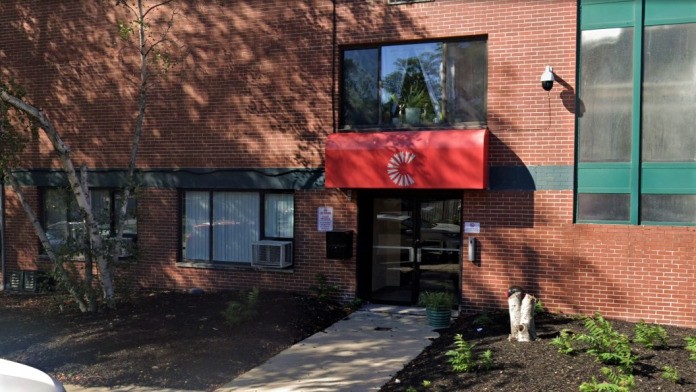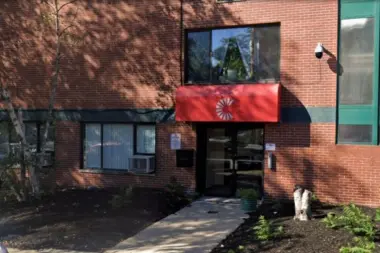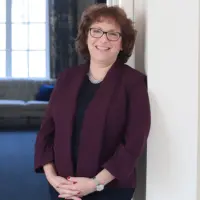About The Connection – Start Program for Young Adults
The Connection – Start Program for Young Adults, located in Hartford, Connecticut, supports adults and children through services addressing substance use disorders and mental health conditions.
What we feel makes this facility unique is their emphasis on addressing housing instability such as homelessness and being at risk of becoming unhoused – specifically for young adults ages 18 to 24. Their individualized case management programs provide compassionate help to help people become healthy and secure long-term housing and employment.
Accessible Care for Everyone
The Connection takes Medicaid and Medicare. They work with various private health insurance providers and accept cash and self-payments. If you need extra assistance accessing care, they provide sliding fee scales with fees adjusted based on your circumstances.
Safe Housing for Young Adults
The Connection understands how crucial stable housing is. It’s one of the most vital parts of healing from substances. This is why they provide services to young people ages 18 to 24 that prioritizes housing, employment, and mental health. They facilitate this through community outreach, emergency shelter services, and rapid re-housing with the end goal of permanent housing to empower you and make you thrive.
Detox and Mental Health Services
We like their outpatient detoxification to help you safely withdraw from substances. The outpatient therapy of The Connection provides flexibility to allow you to continue daily activities while getting care. Life-skills education focuses on developing independence and coping strategies to keep you strong in your recovery journey. Aftercare support provides ongoing support post-treatment, which includes connections to community resources and support groups to maintain sobriety.
Sober Recreation in Hartford
Bushnell Park is a historic park offering green spaces and walking paths, providing a calm setting for rest and relaxation. The Connecticut Science Center is an educational resource that can be integrated into your outpatient recovery programs.
If you like art, you can visit Wadsworth Atheneum Museum of Art and explore the culture there. Elizabeth Park Conservancy features beautiful gardens and walking tails, to serve as a peaceful retreat in between your appointments.
The Connection understands how crucial stable housing is. It’s one of the most vital parts of healing from substances. This is why they provide services to young people ages 18 to 24 that prioritizes housing, employment, and mental health. They facilitate this through community outreach, emergency shelter services, and rapid re-housing with the end goal of permanent housing to empower you and make you thrive.
Detox and Mental Health Services
We like their outpatient detoxification to help you safely withdraw from substances. The outpatient therapy of The Connection provides flexibility to allow you to continue daily activities while getting care. Life-skills education focuses on developing independence and coping strategies to keep you strong in your recovery journey. Aftercare support provides ongoing support post-treatment, which includes connections to community resources and support groups to maintain sobriety.
Sober Recreation in Hartford
Bushnell Park is a historic park offering green spaces and walking paths, providing a calm setting for rest and relaxation. The Connecticut Science Center is an educational resource that can be integrated into your outpatient recovery programs.
If you like art, you can visit Wadsworth Atheneum Museum of Art and explore the culture there. Elizabeth Park Conservancy features beautiful gardens and walking tails, to serve as a peaceful retreat in between your appointments.
Rehab Score
Gallery


Other Forms of Payment
Medicaid is a state based program that helps lower-income individuals and families pay for healthcare. Medicaid covers addiction treatment so those enrolled can use their coverage to pay for rehab. When a program accepts Medicaid the client often pays very little or nothing out of their own pocket.
Private insurance refers to any kind of healthcare coverage that isn't from the state or federal government. This includes individual and family plans offered by an employer or purchased from the Insurance Marketplace. Every plan will have different requirements and out of pocket costs so be sure to get the full details before you start treatment.
Self-pay involves paying for treatment out of your own pocket. You can use savings or credit, get a personal loan, or receive help from family and friends to fund your treatment. If you don't have insurance or your insurance plan doesn't cover a specific program, self-pay can help ensure you still get the care you need.
Sliding scale payments are based on a client's income and family size. The goal is to make treatment affordable to everyone. By taking these factors into account, addiction recovery care providers help ensure that your treatment does not become a financial burden to you or your family, eliminating one barrier to care.
Medicare is a federal program that provides health insurance for those 65 and older. It also serves people under 65 with chronic and disabling health challenges. To use Medicare for addiction treatment you need to find a program that accepts Medicare and is in network with your plan. Out of pocket costs and preauthorization requirements vary, so always check with your provider.
Addiction Treatments
Levels of Care
Outpatient Programs (OP) are for those seeking mental rehab or drug rehab, but who also stay at home every night. The main difference between outpatient treatment (OP) and intensive outpatient treatment (IOP) lies in the amount of hours the patient spends at the facility. Most of the time an outpatient program is designed for someone who has completed an inpatient stay and is looking to continue their growth in recovery. Outpatient is not meant to be the starting point, it is commonly referred to as aftercare.
Drug and alcohol addiction often takes a heavy toll on one's body. Over time, a physical dependence can develop, meaning the body physiologically needs the substance to function. Detox is the process of removing drugs and/or alcohol from the body, a process that can be lethal if mismanaged. Medical detox is done by licensed medical professionals who monitor vital signs and keep you safe, healthy, and as comfortable as possible as you go through detox and withdrawal.
Completing a drug or alcohol rehab program shouldn't spell the end of substance abuse treatment. Aftercare involves making a sustainable plan for recovery, including ongoing support. This can include sober living arrangements like halfway houses, career counseling, and setting a patient up with community programs like Alcoholics Anonymous (AA) or Narcotics Anonymous (NA).
Treatments
The goal of treatment for alcoholism is abstinence. Those with poor social support, poor motivation, or psychiatric disorders tend to relapse within a few years of treatment. For these people, success is measured by longer periods of abstinence, reduced use of alcohol, better health, and improved social functioning. Recovery and Maintenance are usually based on 12 step programs and AA meetings.
Drug rehab in Connecticut provides the professional support that is often necessary to break free from drug dependency. With proper treatment, individuals can make changes that restore balance and health to their lives and achieve long-term recovery.
Many of those suffering from addiction also suffer from mental or emotional illnesses like schizophrenia, bipolar disorder, depression, or anxiety disorders. Rehab and other substance abuse facilities treating those with a dual diagnosis or co-occurring disorder administer psychiatric treatment to address the person's mental health issue in addition to drug and alcohol rehabilitation.
A combined mental health and substance abuse rehab has the staff and resources available to handle individuals with both mental health and substance abuse issues. It can be challenging to determine where a specific symptom stems from (a mental health issue or an issue related to substance abuse), so mental health and substance abuse professionals are helpful in detangling symptoms and keeping treatment on track.
Opioid rehabs specialize in supporting those recovering from opioid addiction. They treat those suffering from addiction to illegal opioids like heroin, as well as prescription drugs like oxycodone. These centers typically combine both physical as well as mental and emotional support to help stop addiction. Physical support often includes medical detox and subsequent medical support (including medication), and mental support includes in-depth therapy to address the underlying causes of addiction.
Programs
Adult rehab programs include therapies tailored to each client's specific needs, goals, and recovery progress. They are tailored to the specific challenges adult clients may face, including family and work pressures and commitments. From inpatient and residential treatment to various levels of outpatient services, there are many options available. Some facilities also help adults work through co-occurring conditions, like anxiety, that can accompany addiction.
Young adulthood can be an exciting, yet difficult, time of transition. Individuals in their late teens to mid-20s face unique stressors related to school, jobs, families, and social circles, which can lead to a rise in substance use. Rehab centers with dedicated young adult programs will include activities and amenities that cater to this age group, with an emphasis on specialized counseling, peer socialization, and ongoing aftercare.
Clinical Services
Research clearly demonstrates that recovery is far more successful and sustainable when loved ones like family members participate in rehab and substance abuse treatment. Genetic factors may be at play when it comes to drug and alcohol addiction, as well as mental health issues. Family dynamics often play a critical role in addiction triggers, and if properly educated, family members can be a strong source of support when it comes to rehabilitation.
Group therapy is any therapeutic work that happens in a group (not one-on-one). There are a number of different group therapy modalities, including support groups, experiential therapy, psycho-education, and more. Group therapy involves treatment as well as processing interaction between group members.
In individual therapy, a patient meets one-on-one with a trained psychologist or counselor. Therapy is a pivotal part of effective substance abuse treatment, as it often covers root causes of addiction, including challenges faced by the patient in their social, family, and work/school life.
Trauma therapy addresses traumatic incidents from a client's past that are likely affecting their present-day experience. Trauma is often one of the primary triggers and potential causes of addiction, and can stem from child sexual abuse, domestic violence, having a parent with a mental illness, losing one or both parents at a young age, teenage or adult sexual assault, or any number of other factors. The purpose of trauma therapy is to allow a patient to process trauma and move through and past it, with the help of trained and compassionate mental health professionals.
Staff

Lisa DeMatteis, Lepore
Chief Executive Officer

Stephen K. Abshire, MPA, MBA
Chief Financial Officer

Beth Connor, MBA
Chief Business Development Officer

Kathleen Savino, PSY.D.
Chief Operating Officer

Jessica Smith, LMFT
Deputy Chief of Business Development

Raquel Lugo, MD
Medical Director

Teresa Ferraro, LPC
Senior Vice President of Programs

Rachel Doody, MS, LPC
Vice President of Community Justice Services
Contact Information
37 Garden Street
Hartford, CT 06105